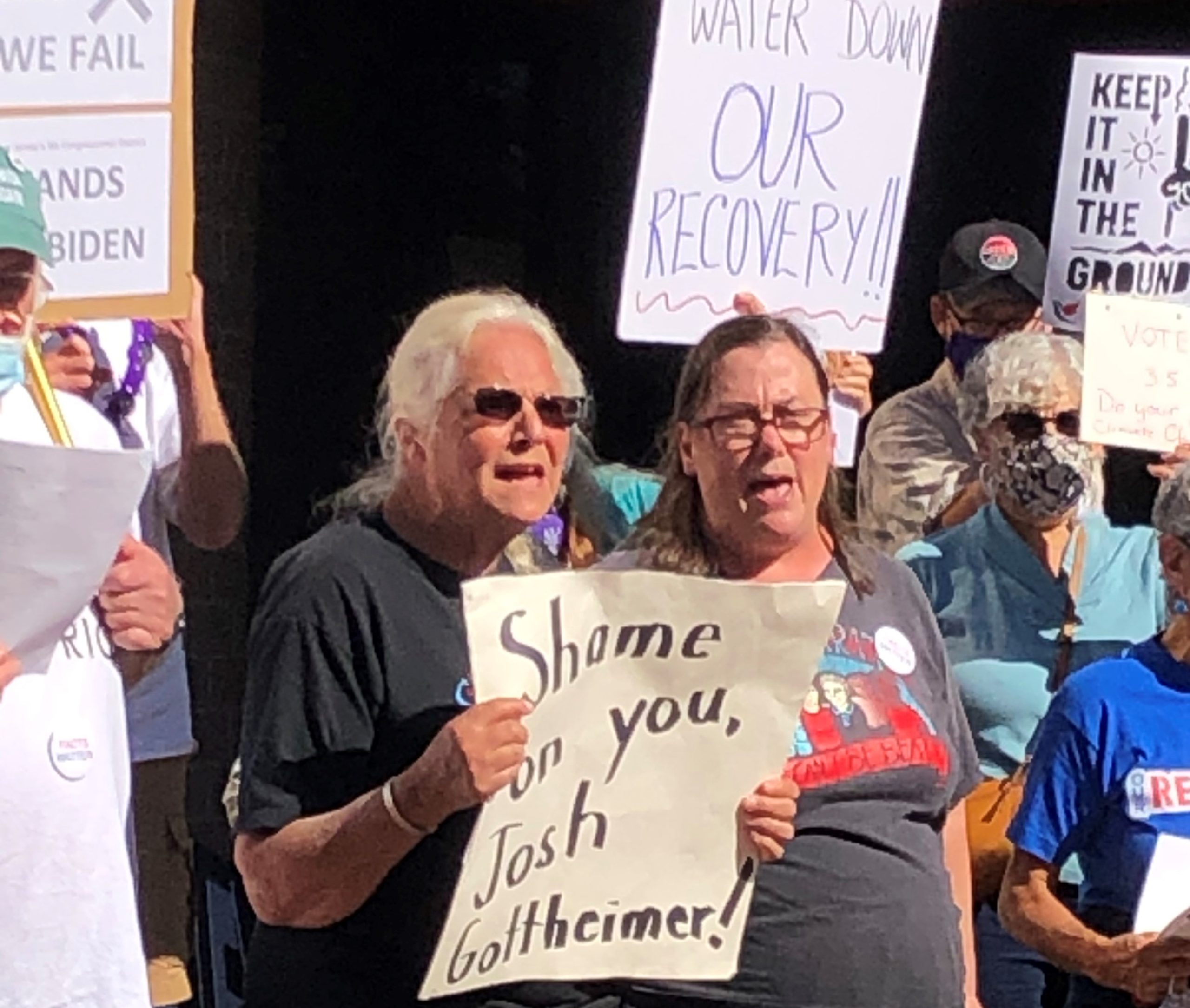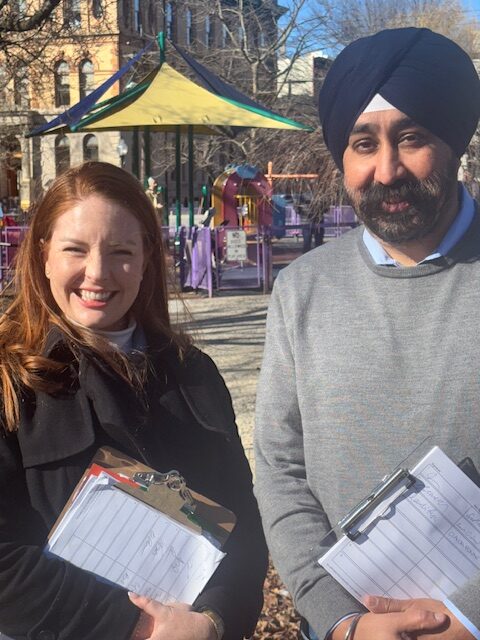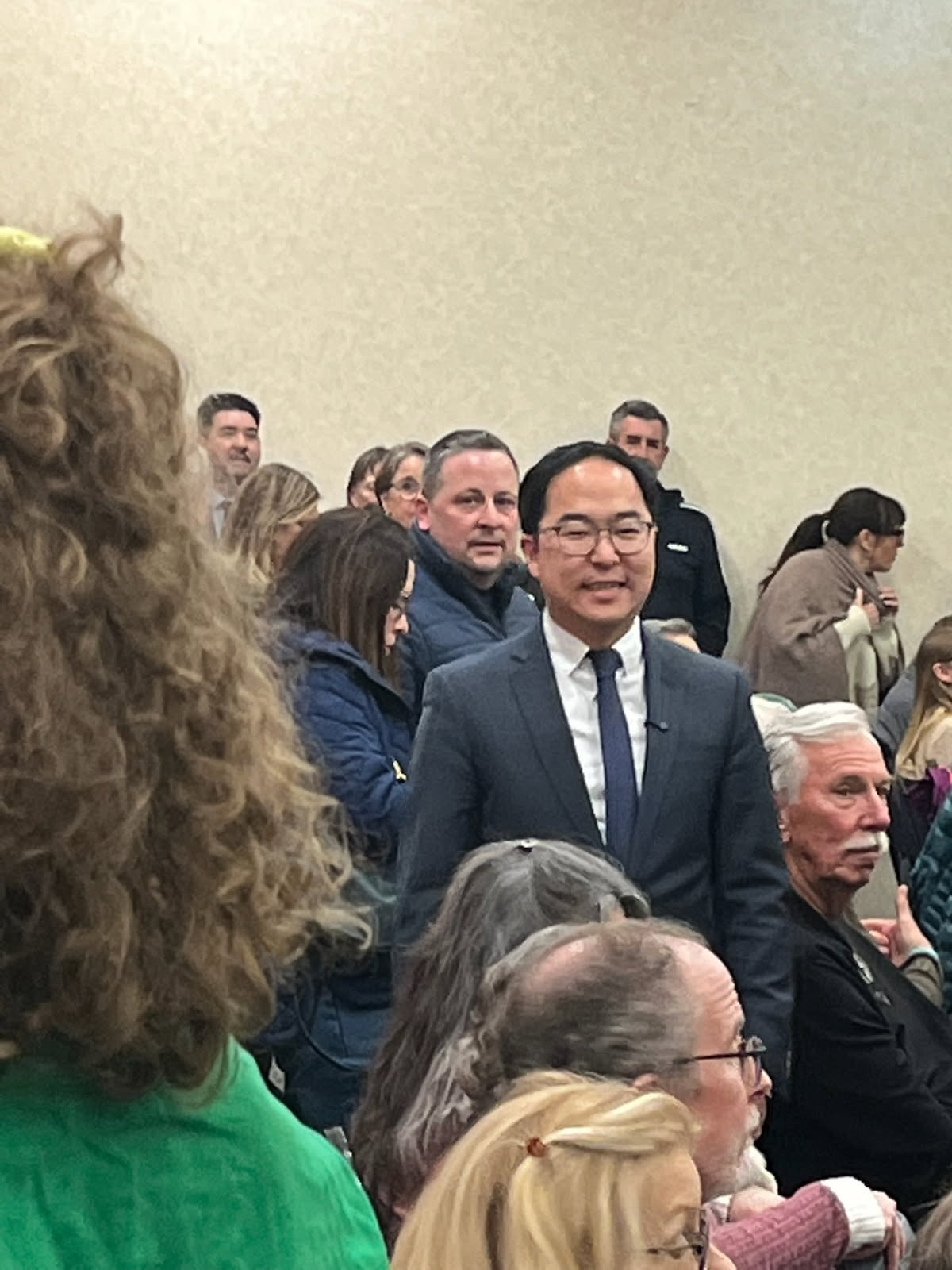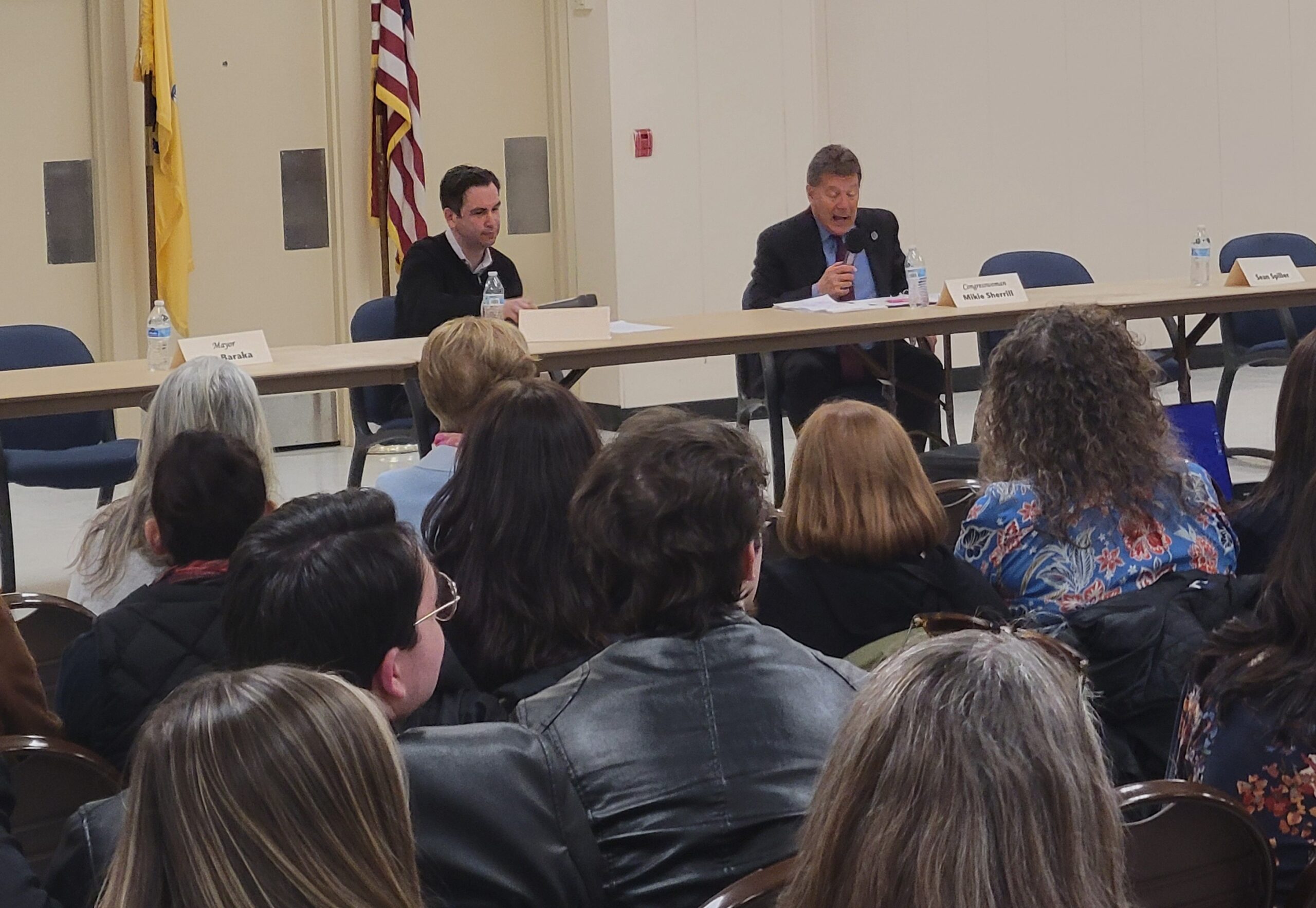
An insider tried to figure out the implications of a judge’s coming ruling on “the line” amid bullhorn-toting progressives pushing conditions of a new normal that bothered party establishment types. For years, Democrats jeered at Tea Party and MAGA types threatening to capsize the GOP. Now, in the words of a resigned Democratic Party player, “This is our Tea Party”, in reference to Andy Kim’s challenge to the line in New Jersey.
A Republican member of the same ruling establishment in New Jersey shook his head, only party in bemusement.
New Jersey has its share of problems, but “just wait till we abolish the lines and organizations can no longer regulate who runs for office. We’ll look like some of these other states whose delegations are packed with crazies.
“As I see it, the corrupt bosses in New Jersey are hardly perfect, and can even be horrific,” the source added, “but it comes down to those bosses versus the extremism in both parties.” And extremism is killing the country, he noted, pointing to the prescience of The Federalist Papers, which cautioned against factionalism, and insisted on structures protecting people from what Tocqueville called “the tyranny of the majority.” From the late Prof. Alan Rosenthal to former ELEC Chief Jeff Brindle, many experts point to the very foundations of representative democracy to make a case for reinforcing – not deteriorating – party organizations.
Maybe New Jersey shouldn’t redesign the ballots away from the line, but reform how party organizations run conventions, forbidding, for example, organizations from exercising a single leader’s vote in place of an entire committee. Certainly, the state should examine the efficacy of requiring secret ballots, to avoid the potential for abuse among party chairs too close to – or too personally dependent on – the most powerful governorship in the country in New Jersey. Or reform the nature of lobbying and patronage in the state as they pertain to party organization. Or cracking down on nepotism.
Would there be anything left after that?
Surely, there wouldn’t be a New Jersey.
Maybe a second Vermont.
Perhaps fearful of such a result, another insider griped that the leaders of the party, complacent perhaps in the rolls of fat formed by lobbying and other professional interests, appeared unwilling or unable to vigorously make the case for a system incorrectly dubbed ignominious and now apparently hanging by a thread in a federal courtroom, courtesy of the little known – and politically ambitious (but then who isn’t) – Congressman Kim. “Don’t f*cking throw the baby out with the bath water,” the source groused.
InsiderNJ consulted another source, who specifically cited the bridge-too-far atmosphere, generated by decades of loathsome public behavior, appearing to have finally come to a head with the preposterous crackup of U.S. Senator Bob Menendez (D-NJ).
“I guess another way to look to at it,” the source said, “is Phil Murphy exploited the worst things about New Jersey politics – buying the line and support in his first run. And he bought some loyalty along with that. But it’s clearly not transferable. So, you try to replicate it – with a lot of the same strategy [for First Lady Tammy Murphy] and it just falls flat.
“But – while people rolled their eyes in 2017, and a good portion of the way – now it’s not eye rolling, but fist-shaking, and finally, punches getting thrown. So, Menendez being the most visible example of machine-propped corrupt absurdity, and then go back to Murphys buying the line, and then well before that – imagine if the current circumstances and conversations were happening in earnest in 2005, when [Jon] Corzine [another Wall Street brand like Murphy] – was out-money balling [then-sitting Governor Dick] Codey.
“So, I don’t know – did the whole construct of state politics as it has existed for decades – or for the sake of argument, the past 20 years, and all the abuse and nonsense – did it inevitably lead to this point in time? The line in court, the ultimate test. Or is it just standard campaign sniping, serious issues to be sure, but just people getting a bit rowdy at a particular moment in time? Is it a real inflection point, or just a temporal irritation.”
“As leaders,” a bipartisan group of Trenton leaders wrote last night, “we have a demonstrated record of working in a bipartisan way on issues regarding voting rights and the transparency of counting ballots, and we are prepared to work in a bipartisan manner to ensure public trust in a transparent and democratic process in New Jersey.
“We are committed to beginning a public process on ballot design in New Jersey, including a thorough and thoughtful review of other states, as well as a process that involves input from the public.”
If controlled by bosses, all or some of them, they sounded sober, even reasonable, not like cretins of extremism. That said, one reader cracked in reaction to this post: “Missed headline opportunity… Group that almost brought us OPRA ‘Reform’ promises to bring us Ballot ‘Reform’.”
(Visited 58 times, 58 visits today)
Bossism and extremism are two prevalent forces in New Jersey politics that have shaped the state’s political landscape for decades. While both have their own unique characteristics and tactics, they share some similarities in terms of their impact on governance and public perception.
Bossism, a term derived from the political machines of the early 20th century, refers to a system of centralized power where a political boss or machine controls the political landscape through patronage, corruption, and manipulation. In New Jersey, Bossism has been historically associated with figures like Frank Hague and George Norcross, who wielded significant influence over local and state politics.
Extremism, on the other hand, is characterized by radical or uncompromising beliefs and actions that seek to disrupt the political status quo. In New Jersey, extremism can manifest in various forms, from far-right groups advocating for strict immigration policies to far-left activists pushing for progressive social change.
When comparing Bossism and extremism in New Jersey politics, it is important to consider their respective impacts on governance and public perception. Bossism, while often criticized for its undemocratic practices, has been credited with delivering tangible benefits to constituents through the distribution of resources and services. However, Bossism also fosters a culture of corruption and cronyism that can undermine the democratic process.
On the other hand, extremism can polarize the political discourse and create divisions within society. While some extremists may be motivated by genuine concerns or grievances, their tactics can alienate moderate voters and hinder constructive dialogue. Extremism also has the potential to incite violence or civil unrest, as seen in recent protests and demonstrations across the country.
In New Jersey, both Bossism and extremism continue to play a significant role in shaping the state’s political landscape. While Bossism may be more entrenched in the traditional power structures of the state, extremism is gaining traction among disenfranchised or marginalized groups seeking to challenge the status quo.
Ultimately, the comparison of Bossism and extremism in New Jersey politics highlights the complex dynamics at play in the state’s political arena. As voters and policymakers navigate these competing forces, it is crucial to uphold democratic values and principles that promote transparency, accountability, and inclusivity in governance. Only by addressing the root causes of Bossism and extremism can New Jersey move towards a more equitable and responsive political system.




